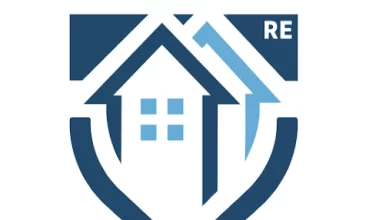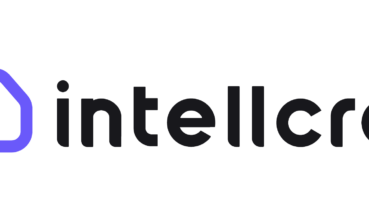The commercial real estate (CRE) industry is making significant advancements in the analysis and valuation of properties, as market pressures compel professionals to reevaluate long-standing...
Deferred Modernizes 1031 Exchanges with No-Fee Model and Technology




Technology is rapidly changing how real estate transactions are handled, bringing new levels of speed and simplicity to processes once known for complexity. At the center of this shift is Deferred, a FinTech startup aiming to transform the 1031 exchange process, a crucial tool for real estate investors looking to defer capital gains taxes.
“We believe we can deliver an experience that’s 10 times better through technology and more efficient because our exchange officers use systems that maximize their client interaction time while minimizing manual work,” says Judd Schoenholtz, Co-Founder and CEO of Deferred.
By combining automation with personalized service, Deferred is challenging the notion that complex financial processes must remain slow or outdated. The company’s approach signals a broader trend in the industry: using digital tools to streamline operations and enhance the overall client experience.
From Personal Need to Industry Innovation
When Schoenholtz needed to complete his own 1031 exchange, he discovered an industry stuck in the past. “It was the most file cabinet business that we had seen in the space,” he explains. “People were maybe using spreadsheets, but definitely not too much custom software, and it tended to be just a very manual process.”
The 1031 exchange process allows real estate investors to defer capital gains taxes when selling investment property by reinvesting proceeds into a like-kind property. This tax strategy requires a Qualified Intermediary (QI) to hold funds during the transaction, a critical role that had seen little innovation for decades.
Looking at the industry with fresh eyes, Schoenholtz identified two key opportunities for transformation:
- Automating compliance: “You’re trying to adhere to a tax code. So there’s a very specific set of rules, and you can use software to check that somebody’s compliant with all those rules.”
- Modernizing money movement: “The other thing you’re really responsible for is money movement, and it’s crazy that you do that manually.” Drawing on experience from previous ventures, Schoenholtz saw an opportunity to leverage modern FinTech infrastructure for more trustworthy and accountable fund management.
The No-Fee Revolution
The most disruptive aspect of Deferred’s approach is eliminating the traditional fee structure entirely. Schoenholtz discovered that QIs were generating most of their revenue from interest earned on client funds held during exchanges, yet still charging substantial fees.
“Everybody charges the same fees, it’s like this commoditized fee structure where everybody’s charging $1,000-$1,500 to do an exchange, plus a bunch of junk fees for doing it faster,” he explains. “But when you look under the hood of the business, they’re holding exchange funds for up to six months.”
The math is striking: “If you’re doing a $5 million exchange, and you hold the funds for 90 days, you’re making something like $50,000 in interest, and then they still send the client the bill for $1,000. It’s kind of crazy.”
Deferred’s solution was to eliminate fees entirely and introduce transparent interest sharing for larger exchanges. “We try to be as generous as possible with the interest sharing, and we try to be as transparent as possible with it, and we don’t charge fees.”
This approach not only provides immediate cost savings but also aligns Deferred’s incentives with those of their customers, the longer the funds are held, the more both parties benefit.
Building a Digital Experience Where None Existed
Beyond the fee structure, Deferred has reimagined the entire exchange process from the ground up, creating a digital experience where previously none existed.
“There’s no customer-facing experience. The customer-facing experience is you call,” Schoenholtz says of traditional QIs. “So we built a portal. People can see their exchange. They can see all the tasks. They can see all the docs. It’s multiplayer. Other people can see the docs.”
This portal enables transparency and self-service previously unavailable in the industry. “The customer wants to do the work. They want to fill out the form or upload the doc or tell you when the money’s ready, as opposed to this telephone back and forth,” Schoenholtz explains.
AI Integration and Partner Tools
With a recent capital raise completed, Deferred is focused on refining its core offering while expanding its capabilities. One key development area is AI integration to streamline document processing.
“We’ve been trying to use AI more to try to ingest things like the documentation, and to try to ingest a settlement statement,” Schoenholtz says. “The settlement statement for the close has a lot of the key information we need. So why are you asking somebody to fill it out and then double-checking it? It should just ingest the settlement statement.”
The challenge lies in the inconsistency of these documents, but solving this problem aligns with Deferred’s vision: “We still have the exchange officers there, but they can spend all their time helping customers and talking to customers, and 0% of their time doing busy work.”
Another focus area is expanding tools for partners, particularly real estate brokers. Deferred has developed a tax analysis tool that helps brokers demonstrate the benefits of 1031 exchanges to potential clients.
“Usually real estate agents have this kind of crafty spreadsheet, and they go to a listing presentation, and they go like, ‘Here’s the property you’re selling and here’s what you can reinvest in. Here’s what your cash flow is going to be,'” Schoenholtz explains. “We built a tool that you can find on our website. It’s on the Resources section.”
By providing this tool for free, Deferred helps brokers make more compelling presentations while simultaneously promoting awareness of 1031 exchanges and their own services.
Growth Through Strategic Partnerships
Rather than pursuing a direct-to-consumer strategy, Deferred is focusing on distribution through partnerships with real estate professionals.
“Right now, we distribute mostly through partnerships. We focus primarily on brokers, but have a lot of tax advisor partners. We’ve got title escrow and just different types of other real estate businesses,” Schoenholtz says.
This approach leverages existing relationships in the real estate ecosystem and positions Deferred as a value-add service that partners can confidently recommend to their clients.
“We have the best service, so it’s easy for them to recommend, charge no fees, so it’s easy for them to recommend and explain,” Schoenholtz notes. “But something we’ve done a lot for, especially the real estate brokers that we focused on, is build tools to help them do their job better.”
The Future of 1031 Exchanges
For real estate investors and professionals, Deferred represents a significant evolution in how 1031 exchanges are conducted. By combining modern technology with a disruptive fee model, the company is making exchanges more accessible, transparent, and cost-effective.
As Schoenholtz and his team continue to refine their offering and expand their partner network, they’re positioned to substantially improve what has historically been one of the most traditional corners of the real estate industry.
“We love this stuff,” Schoenholtz says of the challenges ahead. “It’s a fun way to, especially with a relatively small team, solve all these problems and have really high context and go really fast.”
Similar Articles
Explore similar articles from Our Team of Experts.


“When you use resources, you’ve got to pay for the resources,” says Barret Blondeau, Founder and CEO of Falaya, a tech-forward real estate platform that’s reimagining...


In an industry where 30,000 professionals fell victim to violent crimes last year alone, one startup founder is leveraging her military background to transform real estate safety. Vanessa Ma...


When COVID-19 struck, Johnny Yeh watched as the coworking empire he’d helped build suddenly faced an existential threat. “Immediately, we saw a hit on freelancers using single de...


In an era where affordable housing shortages plague communities across America, MMY US’s first US facility is leveraging innovative modular construction technology to dramatically accelera...




